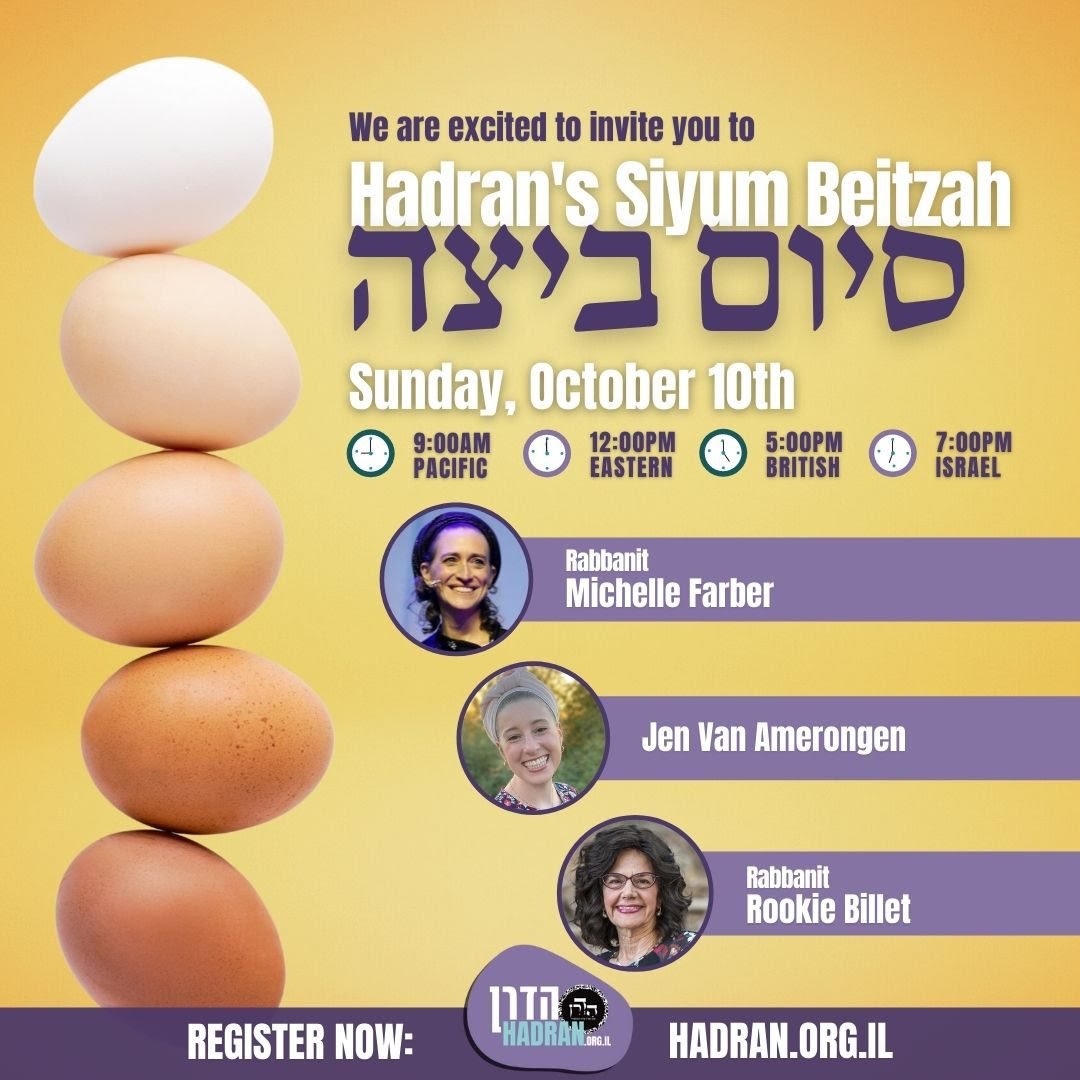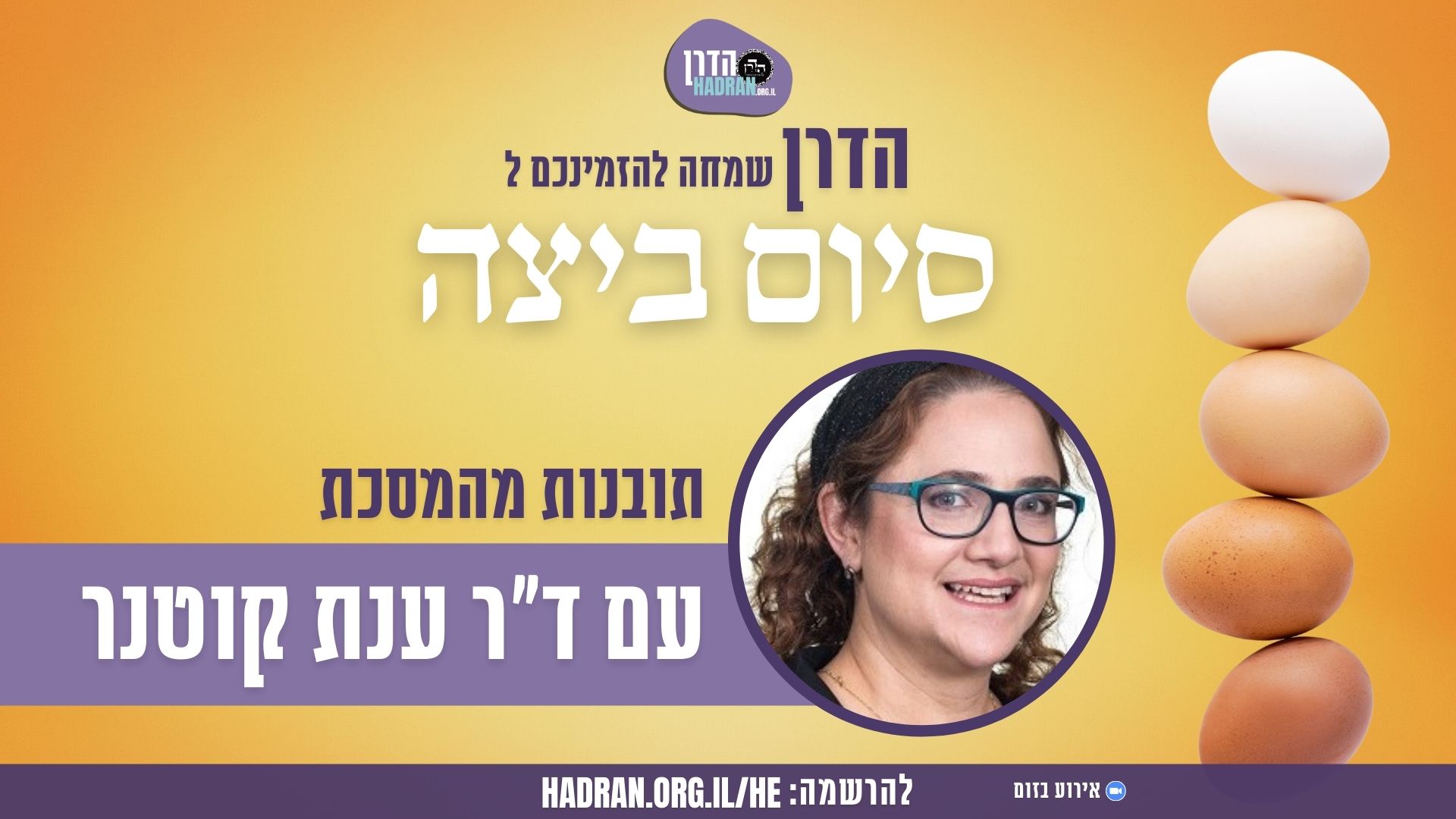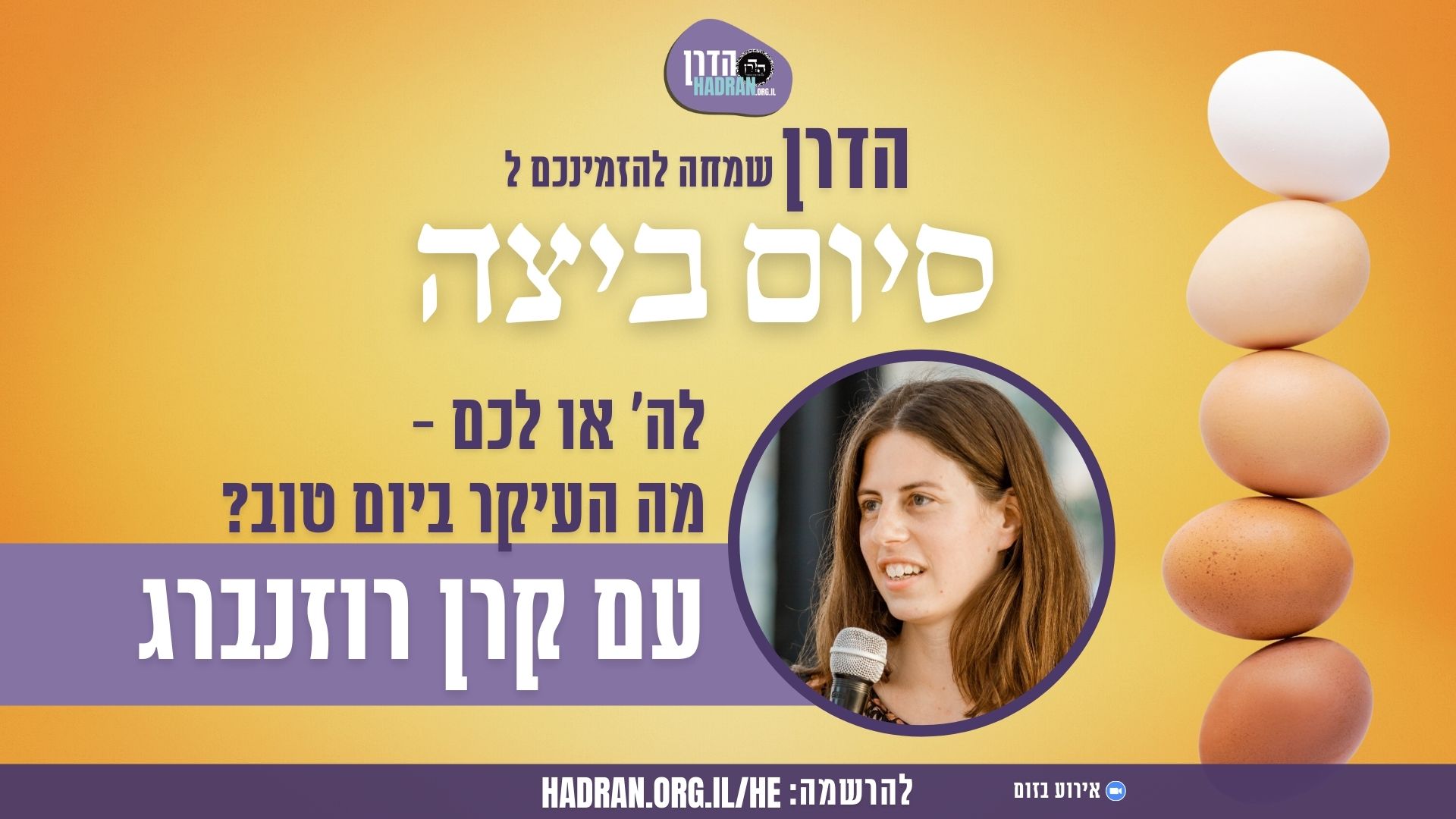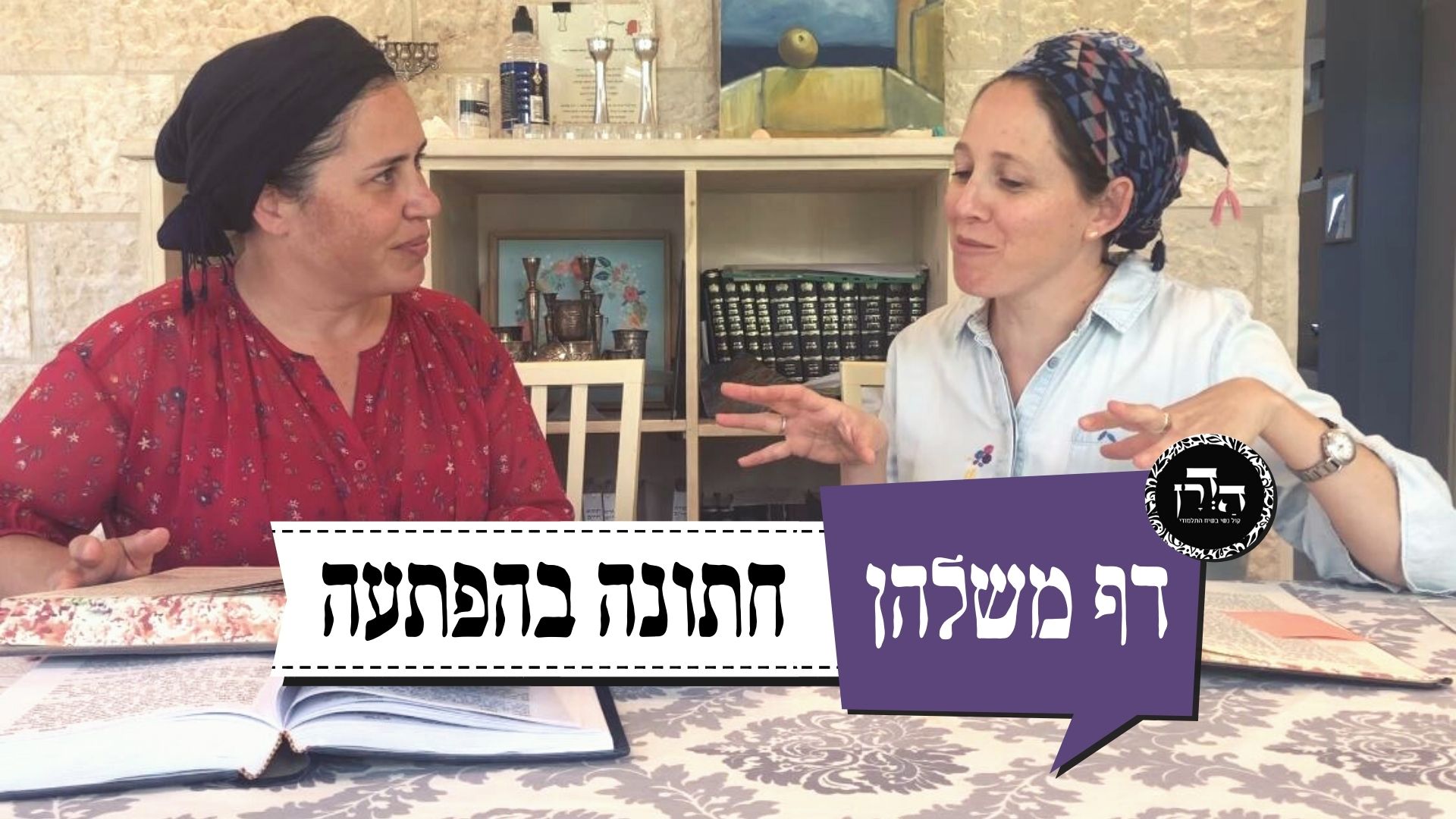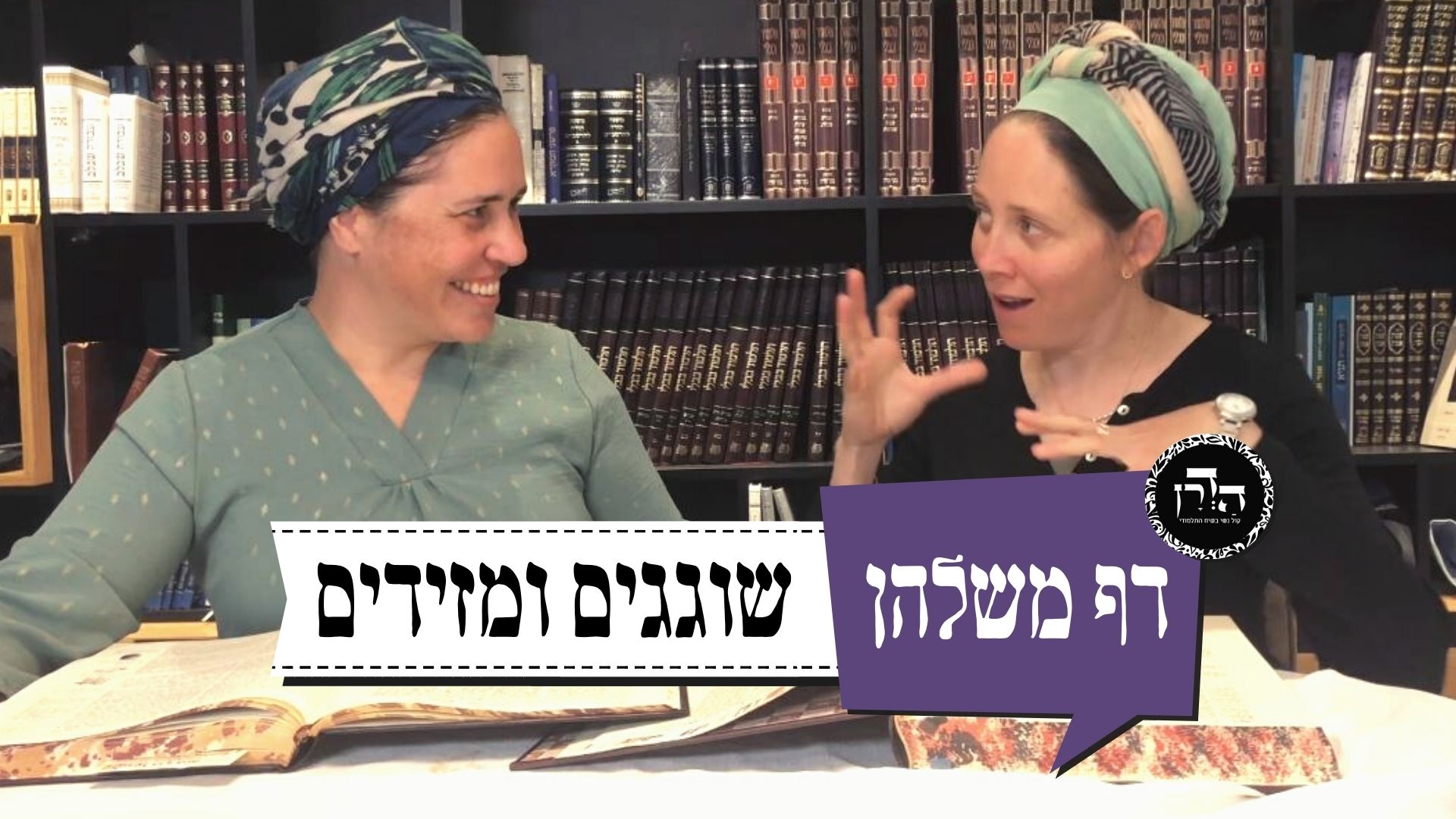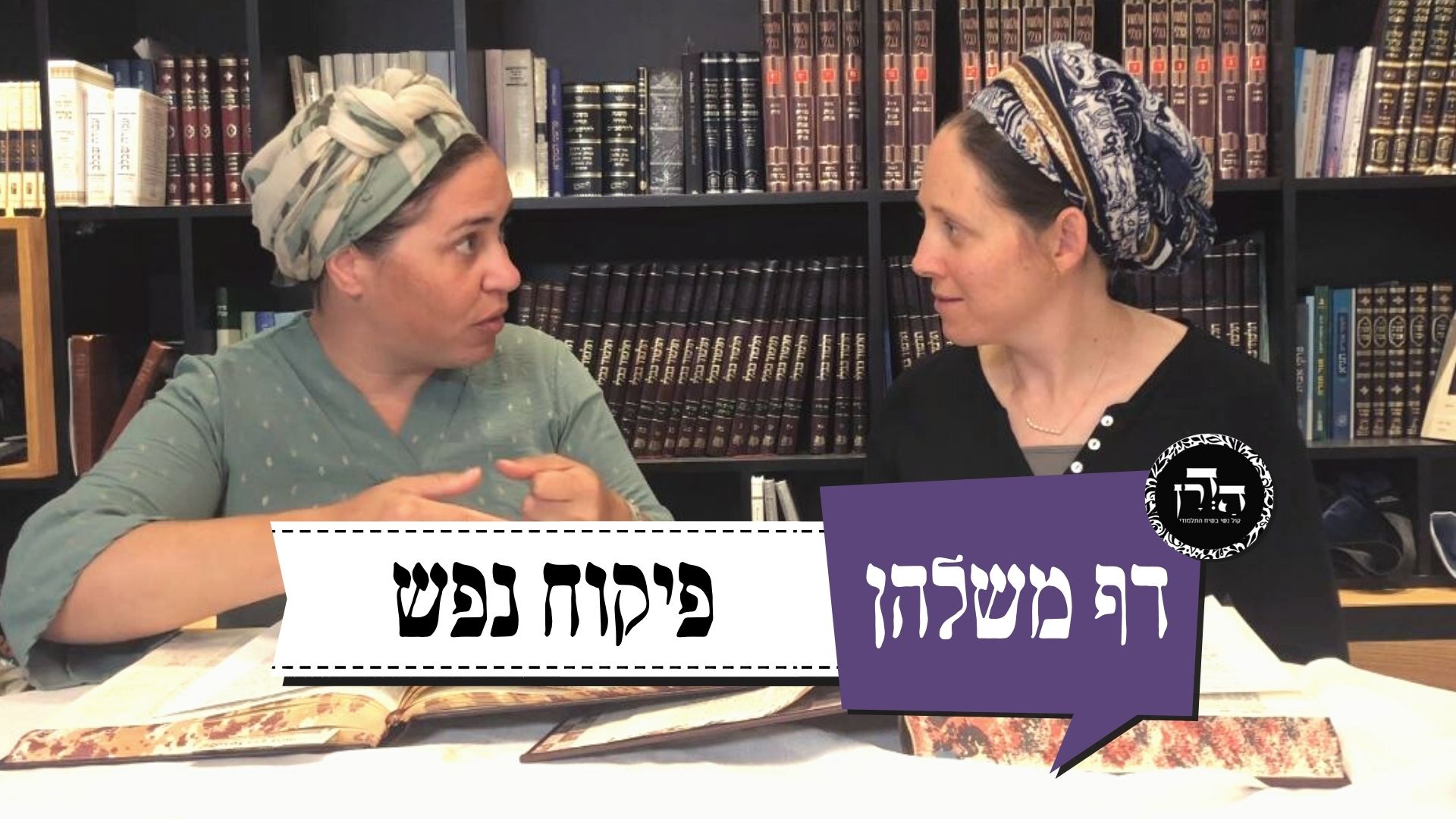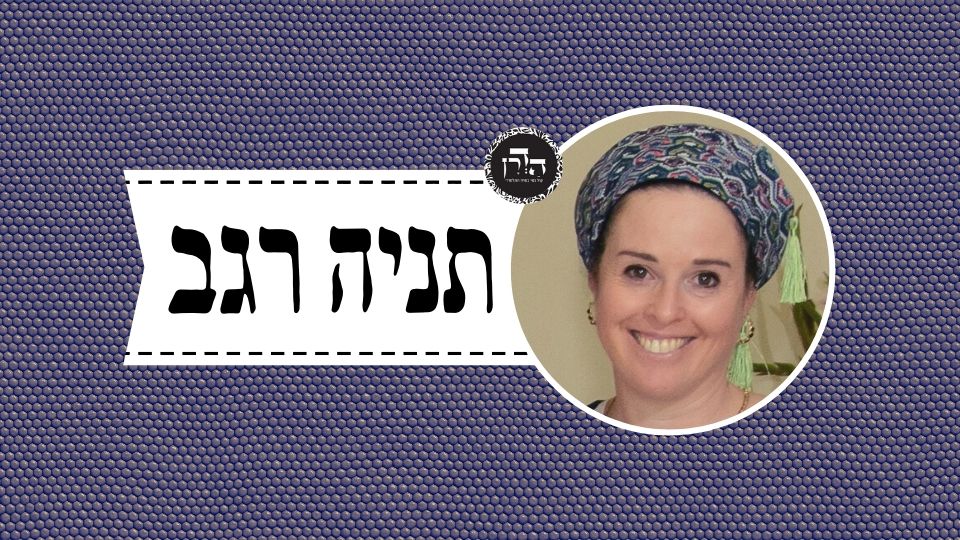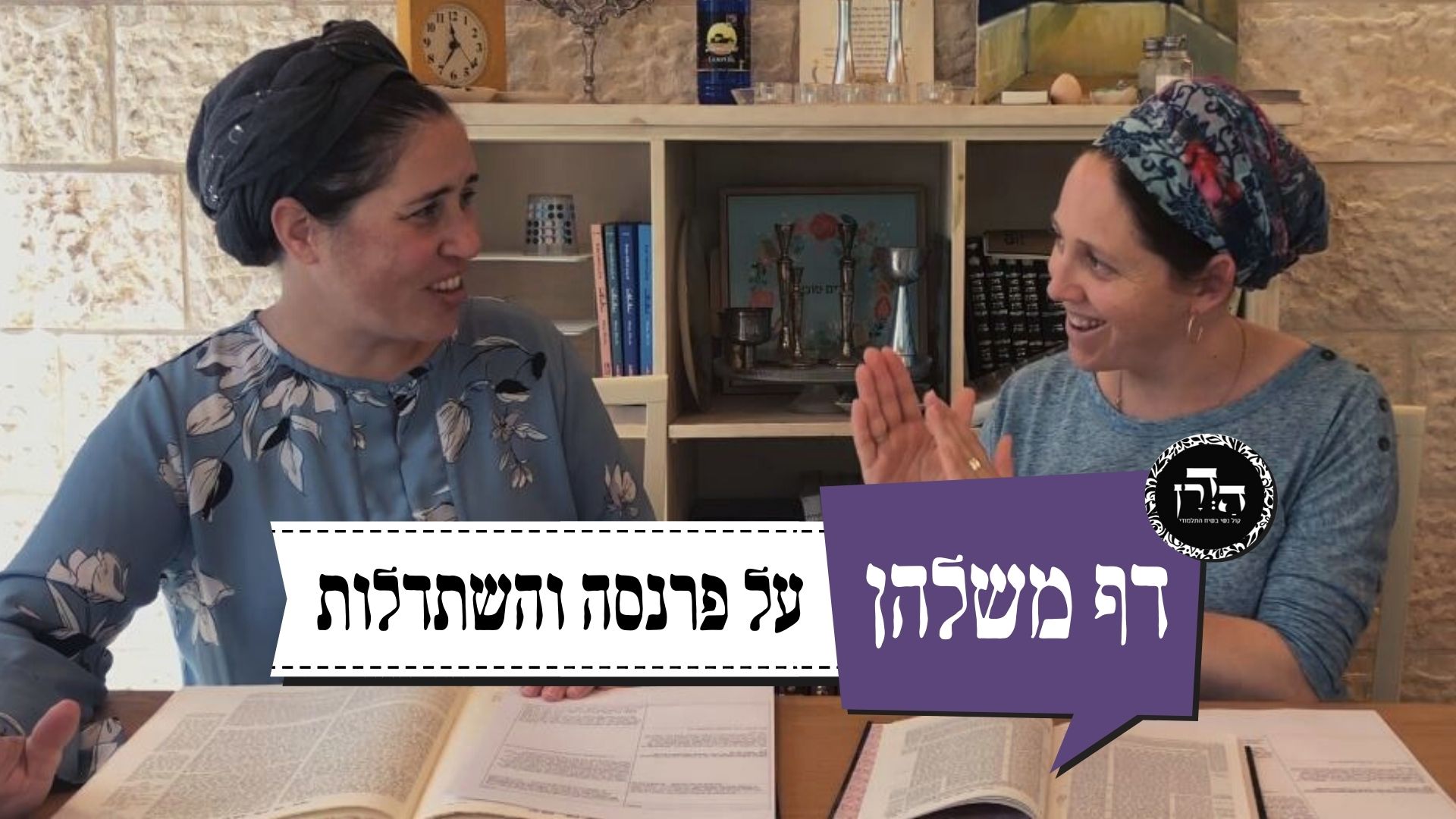ביצה כד
הַמְחוּסָּר צֵידָה — אָסוּר, וְשֶׁאֵינוֹ מְחוּסָּר צֵידָה — מוּתָּר.
inside such an enclosure whose trapping is inadequate, meaning that the enclosure is large and contains hiding places so that it is still necessary to pursue and apprehend the animal, it is prohibited for one to catch it; and with regard to any animal whose trapping is not inadequate, as it is possible to seize it immediately without having to engage in further pursuit, it is permitted for one to catch it.
גְּמָ׳ וּרְמִינְהוּ: בֵּיבָרִין שֶׁל חַיָּה וְשֶׁל עוֹפוֹת — אֵין צָדִין מֵהֶם בְּיוֹם טוֹב וְאֵין נוֹתְנִין לִפְנֵיהֶם מְזוֹנוֹת. קַשְׁיָא חַיָּה אַחַיָּה, קַשְׁיָא עוֹפוֹת אַעוֹפוֹת!
GEMARA: And the Gemara raises a contradiction from what is stated in the Tosefta: From enclosures of animals and of birds, one may not trap animals or birds on a Festival, nor may one place food before them. This is difficult due to a contradiction between the ruling with regard to an animal in the mishna and the ruling with regard to an animal in the Tosefta. This is similarly difficult due to a contradiction between the ruling with regard to birds in the mishna and the ruling with regard to birds in the Tosefta.
בִּשְׁלָמָא חַיָּה אַחַיָּה לָא קַשְׁיָא: הָא רַבִּי יְהוּדָה, הָא רַבָּנַן.
The Gemara resolves the first contradiction: Granted, with regard to the contradiction between the ruling concerning an animal in the mishna and the ruling concerning an animal in the Tosefta, it is not difficult, because this, the baraita that prohibits trapping and feeding animals in the enclosures, is in accordance with the opinion of Rabbi Yehuda, who holds that an animal trapped in an enclosure whose trapping is inadequate, i.e., it is still necessary to pursue and apprehend the animal, is not considered trapped, and therefore one may not trap it from the enclosure on a Festival. Whereas that, the mishna that permits trapping and feeding the animals in the enclosures, is in accordance with the opinion of the Rabbis, who maintain that an animal in an enclosure is considered trapped, and therefore removing it from there is not considered an act of hunting.
דִּתְנַן, רַבִּי יְהוּדָה אוֹמֵר: הַצָּד צִפּוֹר לַמִּגְדָּל וּצְבִי לַבַּיִת — חַיָּיב. לַבַּיִת הוּא דְּמִחַיַּיב, אֲבָל לְבִיבָרִין — לָא. וַחֲכָמִים אוֹמְרִים: צִפּוֹר — לַמִּגְדָּל, וּצְבִי — לַגִּנָּה וְלֶחָצֵר וְלַבִּיבָרִין.
As we learned in a mishna: Rabbi Yehuda says: One who drives and traps a bird into a closet or a deer into a house is liable. The Gemara infers from this: It is only if he traps the animal into a house that he is liable, but if he traps it into an enclosure, he is not liable. And the Rabbis say: One is liable for trapping a bird into a closet, and for trapping a deer into a garden, or into a courtyard, or into an enclosure. This demonstrates that according to the Rabbis, an animal found inside an enclosure is regarded as already captured, whereas Rabbi Yehuda disagrees. From this it follows that Rabbi Yehuda and the Rabbis similarly disagree about catching an animal inside an enclosure and removing it from there on a Festival.
אֶלָּא, עוֹפוֹת אַעוֹפוֹת קַשְׁיָא! וְכִי תֵּימָא הָא נָמֵי לָא קַשְׁיָא: הָא בְּבִיבָר מְקוֹרֶה, הָא בְּבִיבָר שֶׁאֵינוֹ מְקוֹרֶה.
However, concerning the contradiction between the ruling with regard to birds in the mishna and the ruling with regard to birds in the Tosefta, it is difficult, as all agree that they may not be caught, even in one’s house. And if you say that this contradiction is also not difficult, because this, the mishna that permits trapping, is referring to a roofed enclosure, in which a bird is considered captured, and therefore there is no prohibition against apprehending it on a Festival, and that, the baraita that prohibits trapping, is referring to an unroofed enclosure, in which a bird is not considered trapped and apprehending it is prohibited, that does not resolve the contradiction.
וְהָא בַּיִת, דִּכְבִיבָר מְקוֹרֶה דָּמֵי, וּבֵין לְרַבִּי יְהוּדָה וּבֵין לְרַבָּנַן: צִפּוֹר לַמִּגְדָּל — אִין, לַבַּיִת — לָא!
The Gemara explains why the proposed resolution must be rejected: As with regard to a house, which is like a roofed enclosure, there is no dispute. And according to both Rabbi Yehuda and the Rabbis, a bird trapped into a closet, yes, it is considered trapped, while a bird into a house, no, it is not considered trapped.
אָמַר רַבָּה בַּר רַב הוּנָא: הָכָא בְּצִפּוֹר דְּרוֹר עָסְקִינַן, שֶׁאֵינָהּ מְקַבֶּלֶת מָרוּת. דְּתָנָא דְּבֵי רַבִּי יִשְׁמָעֵאל: לָמָּה נִקְרָא שְׁמָהּ צִפּוֹר דְּרוֹר — שֶׁדָּרָה בַּבַּיִת כְּבַשָּׂדֶה.
Rabba bar Rav Huna said: Here, in the mishna, according to which a bird in a house is not considered trapped, we are dealing with a free bird, a sparrow, which does not accept authority. That bird is not intimidated and evades capture even in a house. As the school of Rabbi Yishmael taught: Why is it called a free [dror] bird? Because it dwells [dara] in a house as it does in a field, flittering from place to place. For this reason, it is not considered captured when it is inside a house. Therefore, the distinction between a roofed and an unroofed enclosure resolves the apparent contradiction between the mishna and the Tosefta.
הַשְׁתָּא דְּאָתֵית לְהָכִי, חַיָּה אַחַיָּה נָמֵי לָא קַשְׁיָא: הָא — בְּבִיבָר קָטָן, הָא — בְּבִיבָר גָּדוֹל.
The Gemara comments: Now that you have arrived at this understanding, that the difference between the rulings in the two sources is predicated on different circumstances and not on a tannaitic dispute, the apparent contradiction between the ruling with regard to an animal in the mishna and the ruling with regard to an animal in the Tosefta is also not difficult. This, the ruling in the mishna that permits apprehending the animal, is referring to a small enclosure, in which the animal cannot evade its pursuers and requires no further trapping. That, the ruling in the Tosefta that prohibits apprehending the animal, is referring to a large enclosure, from which the animal cannot escape, but it can still avoid being caught.
הֵיכִי דָּמֵי בִּיבָר קָטָן הֵיכִי דָּמֵי בִּיבָר גָּדוֹל? אָמַר רַב אָשֵׁי: כׇּל הֵיכָא דְּרָהֵיט אַבָּתְרַהּ וּמָטֵי לַהּ בְּחַד שִׁחְיָא — בִּיבָר קָטָן, וְאִידַּךְ — בִּיבָר גָּדוֹל. אִי נָמֵי: כׇּל הֵיכָא דְּאִיכָּא עוּקְצֵי עוּקְצֵי — בִּיבָר גָּדוֹל, וְאִידַּךְ — בִּיבָר קָטָן. אִי נָמֵי: כׇּל הֵיכָא דְּנָפְלִי טוּלָּא דְכֻתְלֵי אַהֲדָדֵי — בִּיבָר קָטָן, וְאִידַּךְ — בִּיבָר גָּדוֹל.
The Gemara asks: What are the circumstances of a small enclosure, and what are the circumstances of a large enclosure? Rav Ashi said: Any enclosure where one can run after an animal and reach it in one stoop is a small enclosure. And any other is a large enclosure. Or perhaps, any enclosure that has a series of corners in which the animal could hide and evade capture is a large enclosure, and any other is a small enclosure. Or perhaps, any enclosure where the shadows from the different walls fall upon each other, because the walls are close together, is a small enclosure. And any other, a larger area where the walls are further apart, is a large enclosure.
רַבָּן שִׁמְעוֹן בֶּן גַּמְלִיאֵל אוֹמֵר לֹא כָּל הַבֵּיבָרִין שָׁוִין וְכוּ׳. אָמַר רַב יוֹסֵף אָמַר רַב יְהוּדָה אָמַר שְׁמוּאֵל: הֲלָכָה כְּרַבִּי שִׁמְעוֹן בֶּן גַּמְלִיאֵל. אֲמַר לֵיהּ אַבָּיֵי: הֲלָכָה — מִכְּלָל דִּפְלִיגִי!
§ It was taught in the mishna: Rabban Shimon ben Gamliel says: Not all enclosures are identical. If the animal is inadequately trapped in the enclosure, it is prohibited for one to catch it; whereas if it is adequately trapped, he is permitted to do so. Rav Yosef said that Rav Yehuda said that Shmuel said: The halakha is in accordance with the opinion of Rabban Shimon ben Gamliel. Abaye said to Rav Yosef: If one rules that the halakha is in accordance with his opinion, does that mean by inference that the Rabbis disagree, or perhaps there is no dispute and everyone accepts the opinion of Rabban Shimon ben Gamliel?
אֲמַר לֵיהּ: וּמַאי נָפְקָא לָךְ מִינַּהּ? אֲמַר לֵיהּ: גְּמָרָא גְּמוֹר, זְמוֹרְתָּא תְּהֵא?!
Rav Yosef said to him: And what difference is there to you whether or not the Rabbis disagree? In either case the halakha is in accordance with the opinion of Rabban Shimon ben Gamliel. Why then does it matter whether or not the issue was in dispute? Abaye said to him, invoking a folk expression with regard to one who learns without reaching understanding: Is it simply learn the lesson; let it be like a song? In other words, is it sufficient to simply parrot the halakhic ruling? Rather, it is necessary to examine the issue to understand it even if it does not yield a practical halakhic difference.
זֶה הַכְּלָל כׇּל הַמְחוּסָּר צֵידָה וְכוּ׳. הֵיכִי דָּמֵי מְחוּסָּר צֵידָה? אָמַר רַב יוֹסֵף אָמַר רַב יְהוּדָה אָמַר שְׁמוּאֵל: כׇּל שֶׁאוֹמֵר הָבֵא מְצוּדָה וּנְצוּדֶנּוּ.
It was further taught in the mishna: This is the principle: Any animal inside such an enclosure whose trapping is inadequate may not be caught and removed from there on a Festival, whereas any animal whose trapping is not inadequate may be apprehended and removed from there. The Gemara asks: What are the circumstances of an animal whose trapping is inadequate? Rav Yosef said that Rav Yehuda said that Shmuel said: Any animal with regard to which one would say: Bring a trap so that we may catch it, as the animal cannot be apprehended without the aid of a trap.
אֲמַר לֵיהּ אַבָּיֵי: וְהָא אֲווֹזִין וְתַרְנְגוֹלִין, שֶׁאוֹמְרִים הָבֵא מְצוּדָה וּנְצוּדֶנּוּ, וְתַנְיָא: הַצָּד אֲווֹזִין וְתַרְנְגוֹלִין וְיוֹנֵי הַרְדִּיסָאוֹת — פָּטוּר!
Abaye said to him: But aren’t geese and chickens that are loose in a courtyard creatures with regard to which one would say: Bring a trap so that we may catch it, as they freely roam about and evade capture? And nevertheless, it is taught in a baraita: One who traps geese, chickens, or domestic doves is exempt, as they are considered already trapped.
אָמַר רַבָּה בַּר רַב הוּנָא אָמַר שְׁמוּאֵל: הַלָּלוּ בָּאִין לִכְלוּבָן לָעֶרֶב, וְהַלָּלוּ אֵין בָּאִין לִכְלוּבָן לָעֶרֶב.
Rabba bar Rav Huna said that Shmuel said: There is a difference between the two cases: These, the geese and chickens, enter their coop in the evening and use it as their fixed dwelling place and are therefore considered trapped, while these animals in the enclosure do not enter their coop in the evening and therefore flee from those trying to seize them.
וַהֲרֵי יוֹנֵי שׁוֹבָךְ וְיוֹנֵי עֲלִיָּיה, דְּבָאִין לִכְלוּבָן לָעֶרֶב, וְתַנְיָא: הַצָּד יוֹנֵי שׁוֹבָךְ וְיוֹנֵי עֲלִיָּיה וְצִפֳּרִים שֶׁקִּנְּנוּ בִּטְפִיחִין בַּבִּירוֹת — חַיָּיב!
The Gemara challenges this argument: But don’t doves of a dovecote and doves of a loft enter their coop in the evening, and yet it is taught in a baraita: One who traps doves of a dovecote, doves of a loft, or birds that are nesting in pitchers in buildings is liable for their capture, although they enter their coop in the evening?
אֶלָּא, אָמַר רַבָּה בַּר רַב הוּנָא אָמַר שְׁמוּאֵל: הַלָּלוּ בָּאִין לִכְלוּבָן לָעֶרֶב וּמְזוֹנוֹתָן עָלֶיךָ, וְהַלָּלוּ בָּאִין לִכְלוּבָן לָעֶרֶב וְאֵין מְזוֹנוֹתָן עָלֶיךָ.
Rather, Rabba bar Rav Huna said that Shmuel said: A distinction can be made as follows: These, the geese and chickens, enter their coop in the evening, and providing them with their feed is your responsibility. They are therefore accustomed to their owners and considered as trapped. Whereas these, the doves of a dovecote and the other birds mentioned in the baraita, admittedly enter their coop in the evening, but feeding them is not your responsibility.
רַב מָרִי אָמַר: הָנֵי עֲבִידִי לְרַבּוֹיֵי, וְהָנֵי לָא עֲבִידִי לְרַבּוֹיֵי. כּוּלְּהוּ נָמֵי עֲבִידִי לְרַבּוֹיֵי! לִכְלוּבָן קָאָמְרִינַן דַּעֲבִידִי לְרַבּוֹיֵי.
Rav Mari said an alternative distinction: These, the doves of a dovecote, are likely to flee from people, and therefore require trapping, while these, the geese, chickens, and domestic doves, are not likely to flee from them. The Gemara asks: All of them are also likely to flee when being pursued, even chickens. The Gemara answers: We meant to say that they are likely to flee to their coop. In other words, even when they reach their coop they do not remain still but continue in their attempts to escape, and are therefore not considered trapped.
מַתְנִי׳ מְצוּדוֹת חַיָּה וְעוֹף וְדָגִים שֶׁעֲשָׂאָן מֵעֶרֶב יוֹם טוֹב — לֹא יִטּוֹל מֵהֶן בְּיוֹם טוֹב, אֶלָּא אִם כֵּן יוֹדֵעַ שֶׁנִּצּוֹדוּ מֵעֶרֶב יוֹם טוֹב. וּמַעֲשֶׂה בְּגוֹי אֶחָד שֶׁהֵבִיא דָּגִים לְרַבָּן גַּמְלִיאֵל, וְאָמַר מוּתָּרִין הֵן, אֶלָּא שֶׁאֵין רְצוֹנִי לְקַבֵּל הֵימֶנּוּ.
MISHNA: If traps for animals, birds, and fish were set on the eve of a Festival, one may not take anything from them on the Festival, unless he knows that the animals found in the traps had already been caught on the eve of the Festival. And an incident is related where a certain gentile brought fish to Rabban Gamliel, and the latter said: The fish are permitted, but I do not wish to accept them from him, as I despise him.
גְּמָ׳ מַעֲשֶׂה לִסְתּוֹר?! חַסּוֹרֵי מְחַסְּרָא וְהָכִי קָתָנֵי: סָפֵק מוּכָן — אָסוּר. וְרַבָּן גַּמְלִיאֵל מַתִּיר. וּמַעֲשֶׂה נָמֵי בְּגוֹי אֶחָד שֶׁהֵבִיא דָּגִים לְרַבָּן גַּמְלִיאֵל, וְאָמַר מוּתָּרִין הֵן, אֶלָּא שֶׁאֵין רְצוֹנִי לְקַבֵּל הֵימֶנּוּ.
GEMARA: The Gemara raises a question about the story involving Rabban Gamliel. Was an incident cited above to contradict a previously stated halakha? The mishna first teaches that one may not eat an animal caught on a Festival, and then relates an incident in which Rabban Gamliel ruled that this is permitted. The Gemara answers: The mishna is incomplete; it is missing an important element, and it teaches the following: Even in a case where it is uncertain whether or not the animal was prepared before the Festival, as it is unclear whether it was caught today or on the previous day, it is prohibited; and Rabban Gamliel permits it. And an incident is also related where a certain gentile brought fish to Rabban Gamliel, and the latter said: The fish are permitted, but I do not wish to accept them from him.
אָמַר רַב יְהוּדָה אָמַר שְׁמוּאֵל: אֵין הֲלָכָה כְּרַבָּן גַּמְלִיאֵל. וְאִיכָּא דְּמַתְנֵי לַהּ אַהָא דְתַנְיָא: סָפֵק מוּכָן, רַבָּן גַּמְלִיאֵל מַתִּיר וְרַבִּי יְהוֹשֻׁעַ אוֹסֵר. אָמַר רַב יְהוּדָה אָמַר שְׁמוּאֵל: הֲלָכָה כְּרַבִּי יְהוֹשֻׁעַ. וְאִיכָּא דְּמַתְנֵי לַהּ אַהָא דְתַנְיָא:
Rav Yehuda said that Shmuel said: The halakha is not in accordance with the opinion of Rabban Gamliel. Some teach this halakhic ruling with regard to this baraita, as it is taught: With regard to something about which an uncertainty exists whether or not it was prepared before the Festival, Rabban Gamliel permits it, and Rabbi Yehoshua prohibits it. Rav Yehuda said that Shmuel said: The halakha is in accordance with the opinion of Rabbi Yehoshua. And others teach it in reference to this baraita, as it is taught:
שׁוֹחֲטִין מִן הַנְּגָרִין בְּיוֹם טוֹב, אֲבָל לֹא מִן הָרְשָׁתוֹת וּמִן הַמִּכְמוֹרוֹת. רַבִּי שִׁמְעוֹן בֶּן אֶלְעָזָר אוֹמֵר: בָּא וּמְצָאָן מְקוּלְקָלִין מֵעֶרֶב יוֹם טוֹב — בְּיָדוּעַ שֶׁמֵּעֶרֶב יוֹם טוֹב נִצּוֹדוּ, וּמוּתָּרִין. בָּא וּמְצָאָן מְקוּלְקָלִין בְּיוֹם טוֹב — בְּיָדוּעַ שֶׁבְּיוֹם טוֹב נִצּוֹדוּ, וַאֲסוּרִין.
One may slaughter animals from pens containing pools of drinking water on a Festival, but not from those found caught in nets or in traps, as they may have been caught on the Festival itself. Rabbi Shimon ben Elazar says: If he came and found the nets and traps out of order on the eve of the Festival, which indicates that an animal had been caught in them, then it is known that the animals were caught on the eve of the Festival, and they are therefore permitted. However, if he checked the nets and traps shortly before the onset of the Festival and found them intact, and he later came and found them out of order on the Festival, it is known that the animals were caught on the Festival, and they are therefore prohibited.
הָא גּוּפַהּ קַשְׁיָא, אָמְרַתְּ: בָּא וּמְצָאָן מְקוּלְקָלִין מֵעֶרֶב יוֹם טוֹב — בְּיָדוּעַ שֶׁמֵּעֶרֶב יוֹם טוֹב נִצּוֹדוּ. טַעְמָא דְּבָא וּמְצָאָן מְקוּלְקָלִין, הָא סְפֵיקָא — אֲסוּרִין. אֵימָא סֵיפָא: בָּא וּמְצָאָן מְקוּלְקָלִין בְּיוֹם טוֹב — בְּיָדוּעַ שֶׁבְּיוֹם טוֹב נִצּוֹדוּ. טַעְמָא דְּבָא וּמְצָאָן מְקוּלְקָלִין, הָא סְפֵיקָא — מֵעֶרֶב יוֹם טוֹב נִצּוֹדוּ, וּמוּתָּרִין.
The Gemara poses a question: The baraita itself is difficult because it contains an internal contradiction between its clauses: You first said that if he came and found them out of order on the eve of the Festival, it is known that they were caught on the eve of the Festival. The reason is that he came and found them out of order, but if there is uncertainty, the animals are prohibited. But say now the latter clause of that same baraita: If he came and found them out of order on the Festival, it is known that they were caught on the Festival. The reason is that he came and found them out of order, but in a case of uncertainty, the assumption is that they were caught on the eve of the Festival and are permitted.
הָכִי קָאָמַר: בָּא וּמְצָאָן מְקוּלְקָלִין מֵעֶרֶב יוֹם טוֹב — בְּיָדוּעַ שֶׁמֵּעֶרֶב יוֹם טוֹב נִצּוֹדוּ, וּמוּתָּרִין. הָא סְפֵיקָא — נַעֲשָׂה כְּמִי שֶׁנִּצּוֹדוּ בְּיוֹם טוֹב, וַאֲסוּרִין.
The Gemara explains: This is what the baraita is saying: If he came and found them out of order on the eve of the Festival, it is known that they were caught on the eve of the Festival, and they are permitted. But in a case of uncertainty, it is considered as if they were caught on the Festival, and they are prohibited.
אָמַר רַב יְהוּדָה אָמַר שְׁמוּאֵל: הֲלָכָה כְּרַבִּי שִׁמְעוֹן בֶּן אֶלְעָזָר.
Rav Yehuda said that Shmuel said: The halakha is in accordance with the opinion of Rabbi Shimon ben Elazar. All these versions of Shmuel’s ruling are basically in agreement: In a case of uncertainty as to whether or not an item was prepared before the Festival, it is prohibited.
וְאָמַר מוּתָּרִין הֵם. מוּתָּרִין לְמַאי? רַב אָמַר: מוּתָּרִין לְקַבֵּל. וְלֵוִי אָמַר: מוּתָּרִין בַּאֲכִילָה.
§ It was stated in the mishna that Rabban Gamliel said that the fish brought to him on the Festival by the gentile are permitted. The Gemara asks: Permitted for what purpose? Rav said: They are permitted to be received and moved, but they may not be eaten. Levi said: They are even permitted to be eaten.
אָמַר רַב: לְעוֹלָם אַל יִמְנַע אָדָם עַצְמוֹ מִבֵּית הַמִּדְרָשׁ אֲפִילּוּ שָׁעָה אַחַת. דַּאֲנָא וְלֵוִי הֲוֵינַן קַמֵּיהּ דְּרַבִּי כִּי אַמְרַהּ לְהָא שְׁמַעְתָּא, בְּאוּרְתָּא אָמַר: מוּתָּרִין בַּאֲכִילָה, בְּצַפְרָא אָמַר: מוּתָּרִין לְקַבֵּל. אֲנָא דַּהֲוַאי בֵּי מִדְרְשָׁא — הֲדַרִי בִּי. לֵוִי דְּלָא הֲוָה בִּי מִדְרְשָׁא — לָא הֲדַר בֵּיהּ.
Rav said: A person should never prevent himself from attending the study hall for even one moment, and the proof is from this issue; as Levi and I were before Rabbi Yehuda HaNasi when he stated this halakha. In the evening he said: They are permitted to be eaten, but the following morning he said: They are permitted only to be received. I, who was in the study hall in the morning as well, retracted what I said, and taught the matter in accordance with Rabbi Yehuda HaNasi’s second opinion. Levi, who was not in the study hall in the morning, did not retract his statement.
מֵיתִיבִי: גּוֹי שֶׁהֵבִיא דּוֹרוֹן לְיִשְׂרָאֵל, אֲפִילּוּ דָּגִים הַמְפוּלָּמִין וּפֵירוֹת בְּנֵי יוֹמָן — מוּתָּרִין. בִּשְׁלָמָא לְמַאן דְּאָמַר מוּתָּרִין לְקַבֵּל — שַׁפִּיר. אֶלָּא לְמַאן דְּאָמַר מוּתָּרִין בַּאֲכִילָה, פֵּירוֹת בְּנֵי יוֹמָן מִי שָׁרוּ בַּאֲכִילָה?
The Gemara raises an objection from the following baraita: If a gentile brought a gift [doron] to a Jew on a Festival, even moist [mefulamin] fish or produce from that same day, they are permitted. Granted, according to the one who said they are permitted to be received, it is well; the halakha is understandable. However, according to the one who said they are permitted to be eaten, is produce from that same day permitted to be eaten? If it was picked from the tree on that day, it is subject to the prohibition of muktze.
וּלְטַעְמָיךְ: פֵּירוֹת בְּנֵי יוֹמָן מִי שָׁרוּ בְּטִלְטוּל? אֶלָּא, בִּכְווֹרֵי דַּאֲדִימֵי וּפֵירֵי דִּכְבִישִׁי בְּיַרְקָא עָסְקִינַן, וְאַמַּאי קָרֵי לְהוּ בְּנֵי יוֹמָן — שֶׁהֵן כְּעֵין בְּנֵי יוֹמָן.
The Gemara responds with a counter-question: And according to your reasoning, is produce picked on that same day permitted to be moved? Why, then, is it obvious to you that the produce is permitted to be received? Rather, it must be explained that we are dealing with fish whose gills are still red and with produce that is preserved in greens, not with produce that was actually picked on that day. Why, then, is it called produce of that same day? Because it is fresh and similar to produce picked on that same day. Such produce is permitted not only to be moved, but even to be eaten.
אָמַר רַב פָּפָּא, הִלְכְתָא: גּוֹי שֶׁהֵבִיא דּוֹרוֹן לְיִשְׂרָאֵל בְּיוֹם טוֹב, אִם יֵשׁ מֵאוֹתוֹ הַמִּין בִּמְחוּבָּר — אָסוּר. וְלָעֶרֶב נָמֵי אֲסוּרִין בִּכְדֵי שֶׁיֵּעָשׂוּ.
Rav Pappa said that the halakha in this regard is as follows: In the case of a gentile who brought a gift to a Jew on a Festival, if there is of that species still attached to a tree or the ground, it is prohibited to be eaten, as it may be assumed that the gentile picked it that same day. And in the evening as well, after the conclusion of the Festival, it is prohibited for the period of time needed for its preparation, i.e., the period of time necessary to detach it from the tree or the ground, as one may not derive benefit from a prohibited labor that was performed on a Festival on behalf of a Jew.
וְאִם אֵין מֵאוֹתוֹ הַמִּין בִּמְחוּבָּר, תּוֹךְ הַתְּחוּם — מוּתָּר,
And if none of that species is still attached to the ground, then if the gift was brought from within the limit, i.e., the distance one may travel on a Festival, it is permitted, as no prohibited labor has been performed.

